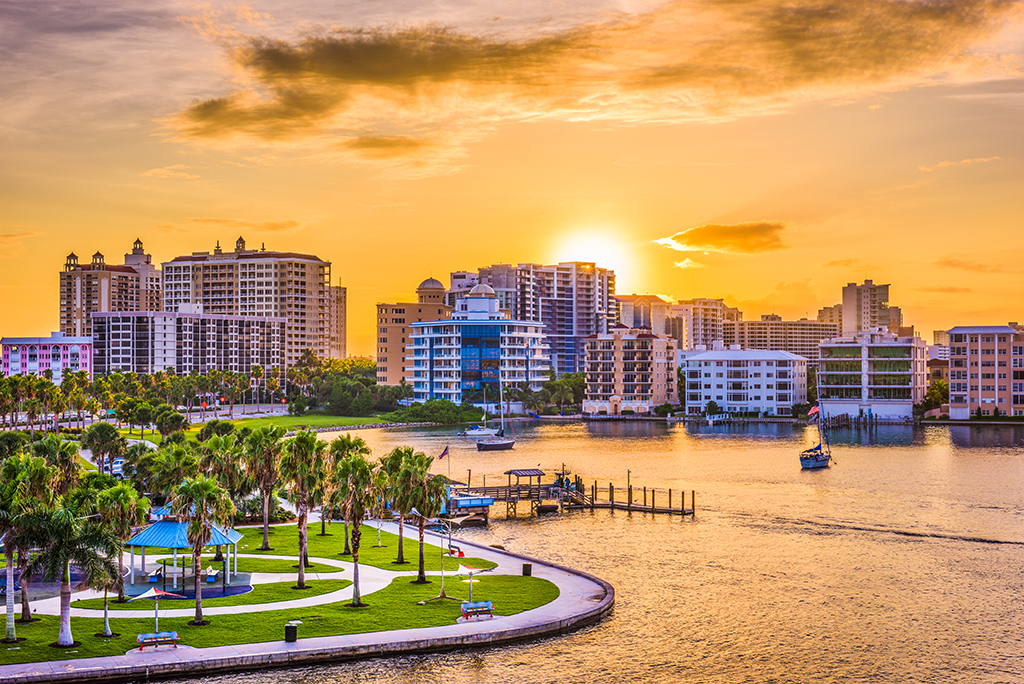9 Essential Things to Know Before Moving to Florida

Florida has made a name for itself as the go-to destination for a vacation in the United States. In fact, you may have enjoyed your last trip so much that you’re thinking of moving to a new home in Florida. But living in Florida isn’t just about the beaches and attractions. To help you make an informed decision on whether to relocate or not, here are some fast facts about the Sunshine State.
Location
Florida is in the southernmost part of the country along the east coast. Nearer the equator, the state has a significantly warmer climate compared to other parts of the country. Florida is also surrounded by two big bodies of water, the Gulf of Mexico and the Atlantic Ocean. This coastal location continuously brings in flowing, fresh air and easy access to seafood, ports, and water recreational activities.
Weather
The warm climate in Florida has its perks and downsides. Some of the advantages of having sunny weather are the numerous opportunities for outdoor activities, flourishing flora, and a large variety of wildlife. For this reason, Florida is called the Sunshine State.
Despite its nickname, it’s not always sunny in Florida. The state has a hurricane season that starts from June up to November, peaking between August and September. Since 1891, there have been 37 hurricanes in the area. Before moving to Florida, make sure to learn about hurricane safety in case of severe weather.
Regions
Before choosing a home in Florida, remember that living in the northern and southern regions results in different lifestyles. North Florida, for instance, has a colder climate and a South American culture. This means Creole and Cajun cuisine, country music, and outdoor barbecues. You will also be able to experience snow.
Meanwhile, South Florida bears the more popular opinion on the Sunshine State. It has warmer weather, beaches, and flocks of tourists coming each year. The area is also highly influenced by Cuban and Caribbean culture and features a high Latino population.
Cost of Living
Cost of living is always a crucial factor when choosing a place to relocate. In Florida, the cost of living (102.8) is only two percent higher than the national average (100). While the cost of living is slightly higher, you can potentially save more since Florida is one of the seven states in the U.S. with no income tax. You will then have more funds to use for your other taxes, utilities, daily necessities, and other expenses.
Local Economy
The economy in Florida comparably differs between the North and the South. In South Florida, tourism is the soul of the economy. With more than 100 million tourists gathering each year, there is a lot of focus on the service industry. While the North experiences tourism as well, it has a more diverse economy. Some of the primary industries in the area include agriculture, education, military, and finance.
Employment
Before relocating, it’s good practice to know more about the available employment opportunities in the area. At the time of writing, some of the key facts you need to know are:
- The minimum wage in Florida is $8.65 per hour. It is far below the recommended living wage, which is $16.54 per hour.
- The average salary in Florida ranges from $9.21 per hour to $30.71 per hour.
- As of November 2020, the Florida Department of Economic opportunity reports that the state’s unemployment rate is 6.4% against the national average, 6.7%.
Some of the biggest employers in the state include Walt Disney World, healthcare companies, the public school system, the agriculture industry, and Publix supermarkets, a Florida-based grocery chain.
Tourism
Before moving to Florida, consider carefully if you prefer to be a tourist or a resident. The experiences between the two can differ greatly. Tourism is a central part of the state’s economy and creates several jobs for residents. While a high tourist count is a good thing, it has its downsides. Increased traffic, higher living costs in certain areas, and overly crowded destinations are only some of the things you’ll have to bear with as a resident during peak seasons.
Traffic and Transportation
For a state with so many visitors each year, public transportation services are reportedly dismal. If you want to get around, you need to use a car. Residents and visitors alike are car-dependent, which contributes to congestion and increased traffic. While city planners are continuously working on projects to improve public transit and roads, the difficult commuting experience won’t change people’s preferences for private vehicles soon.
Housing
Florida offers several housing options for people looking to buy a home in the state. Expectedly, houses along the beach and in other high-valued locations cost more than the average home. To have a better idea of housing costs in the area, keep these in mind:
- Median home value — $206,476
- Median rent price — $1,800
Due to the risk of flooding in some areas, make sure to get flood insurance. It’s not often part of the usual home insurance, so inquire the realtor if a location is prone to flooding.
Whether you’re moving to Florida or any other state, relocation is always a significant milestone in life. Thus, you need to research well and make sure that you’re ready for such an enterprise. Once you’re set on relocating, make sure to pack your items properly and hire reliable moving companies, like Sam’s Movers, who can make relocation an easy and stress-free experience. Talk to expert Wridgways international removalist.